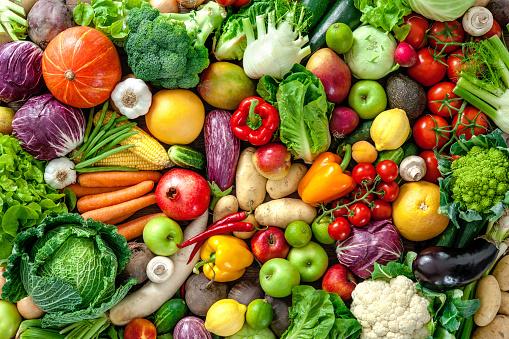According to specialists, some foods need to be consumed daily. Some of them are lean proteins and an assortment of vegetables. Besides that, having olive oil, almonds, and berries in one’s diet can help reduce the risk of some chronic diseases. A healthy diet consisting of different healthy food types can assist you in increasing your intake of vital nutrients. Most individuals consume the same foods week after week. Nevertheless, including the following foods in your weekly meal plans can assist them in maintaining optimal health and performance. Below are the five healthiest foods to try in 2023.
1. Lean Protein

Protein is necessary for healthy growth and development and the maintenance of muscular mass. Consuming protein at every meal can assist in maintaining blood sugar levels and prevent the peaks that can occur when consuming carbohydrates alone. This strategy might help you retain composure and focus.
The quantity of protein you require relies on your gender, age, and weight, among other variables. Likewise, protein requirements vary based on a person’s level and kind of physical activity, as well as whether or not one is pregnant or breastfeeding.
If you are a vegan, soybean is an excellent source of protein. Soybean can be the best option to choose if you are searching for a healthy diet. To learn more about your soy diet, take a look at soy foods. You must diversify your protein sources to consume a wide range of amino acids and other vital nutrients.
2. Various Cruciferous Vegetables

Cruciferous veggies have sulfurous chemicals called Glucosinolates. These are health-promoting. Based on a 2020 review, glucosinolates affect cell processes and genes and can have anti-cancer and anti-inflammatory effects.
The chemicals may be useful for treating and eliminating metabolic syndrome, although additional research is required to confirm this. Below is a list of cruciferous vegetables that individuals should strive to consume daily:
- broccoli
- cabbage
- radish
- cauliflower
- broccoli shoots
In addition to sulfur compounds, cruciferous vegetables provide an abundant source of fiber and several critical vitamins and minerals. The leafy greens arugula and watercress contain sulfur compounds as well.
3. Various Colors of Veggies

Health professionals, such as the American Heart Association (AHA), acknowledge the Mediterranean diet as being among the healthiest dietary patterns. Vegetable-centric diets, like plant-based diets and the Mediterranean diet, can significantly reduce the risk of chronic diseases like heart disease and diabetes. Various colorful veggies increase the intake of phytonutrients, which are beneficial plant chemicals. The MyPlat e resource of the USDA suggests that adults consume a few cups of veggies per day, depending on their gender, age, weight, and degree of physical activity. The USDA also recommends consuming various plant foods, including leafy greens, beans, and lentils.
Besides, consider olive oil – a fundamental component of the Mediterranean diet. Olives are polyphenol-rich. These serve as antioxidants, preventing oxidative harm to the body. In test tube tests, a 2018 study indicated that the phenolic chemicals in olive oil have anti-cancer and anti-inflammatory characteristics. Although further human research is required, the authors of this study believe that individuals who eat less olive oil may benefit from increasing their consumption. Olive oil that is extra virgin and unfiltered contains the highest healthful polyphenols. Regular olive oil for cooking is affordable.
Also Read: Best Online Grocery Store in India
4. Berries

Bioactive substances such as phenolic acids, flavonoids, and anthocyanins are abundant in berries. As antioxidants, these chemicals may prevent cardiovascular disease and reduce the incidence of some malignancies.
Included in the list of Berries to Consume daily are the Following:
- blueberries
- blackberries
- raspberries
- strawberries
- cranberries
Fresh or frozen berries are superior to their dehydrated counterparts, which contain only 20% as many phytonutrients.
5. Nuts

Understand that daily consumption of nuts is advantageous to health. A 2019 prospective research of approximately 16,217 individuals with diabetes found that those who consumed five or more servings of nuts per week had a decreased risk of coronary heart disease, cardiovascular disease, and mortality than those who consumed less than one serving per month. In particular, tree nuts were more effective than peanuts in reducing chronic diseases. A 2020 study revealed that the high-fat content of nuts might discourage some individuals from consuming them.
Nonetheless, the scientists noted that nuts are nutrient-dense foods that have no negative impact on body weight. They may aid in weight loss by substituting less nutritious items in the diet. Some individuals cannot consume nuts due to an allergy. Those who can consume nuts should choose simple, unflavored, and unsalted varieties. All nuts include vital elements such as calcium, magnesium, and zinc. A single Brazil nut contains 95.8 micrograms (mcg) of the mineral selenium, making it one of the greatest dietary sources.
Also Read: 5 Food Must Have in Your Morning Breakfast
Final Thoughts
Daily consumption of lean protein, veggies, and nuts can help maintain health and prevent some chronic diseases. Some plant foods, such as cruciferous vegetables and berries, contain chemicals that benefit your health. Examples include polyphenols and glucosinolates.
Incorporating these items into a weekly meal plan, perhaps on a two-week rotation, will help guarantee that a person receives a wide range of healthy nutrients. It also prevents a monotonous diet and makes food more enticing and gratifying.



More Stories
Best Indian Restaurant In Burnaby
From Appetizers to Desserts: Elevate Your Wedding Food with Creative and Delicious Ideas
Ideas for Creamy Chocolate Flavors with a Smooth Texture